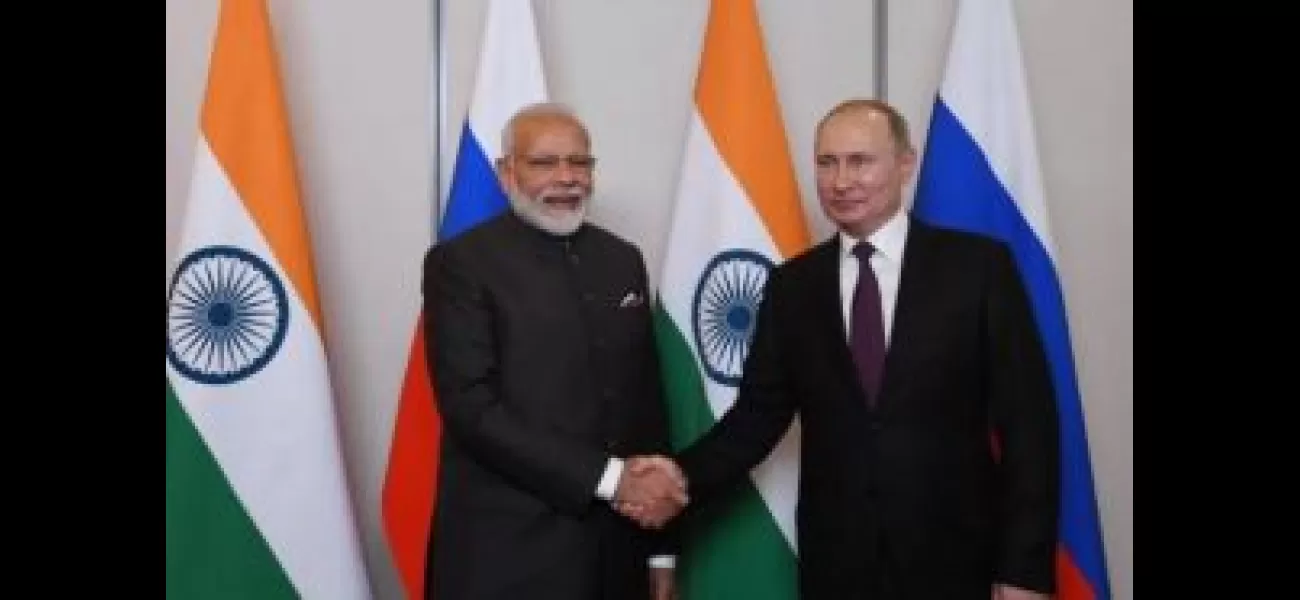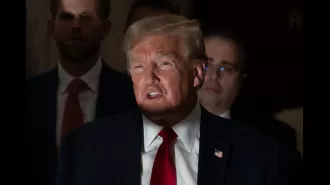India and Russia aim to increase trade to $100 billion by 2030 and collaborate in the fields of energy and agriculture.
India and Russia aim to increase trade to $100 billion by 2030 through investments, use of national currencies, and collaboration in energy, agriculture, and infrastructure.
July 9th 2024.

In a historic moment, leaders from India and Russia have come together to further strengthen their long-standing partnership. During the 22nd Annual Bilateral Summit between President Vladimir Putin and Prime Minister Narendra Modi in Moscow, the two sides have agreed to take their trade and economic cooperation to new heights. A joint statement issued after the summit outlines their shared commitment to developing a special and privileged strategic partnership.
One of the key goals of this partnership is to boost bilateral trade to over USD 100 billion by 2030. To achieve this, both countries have agreed to focus on nine key areas of cooperation. These include using national currencies for trade, increasing cargo turnover through new routes, and promoting investments and joint projects across various sectors such as energy, agriculture, and infrastructure.
To facilitate trade, the leaders have agreed to eliminate non-tariff barriers and promote dialogue on liberalization. They have also discussed the possibility of establishing a free trade area between the Eurasian Economic Union and India. This will not only increase trade volume but also help achieve a balance in bilateral trade.
In a significant move, the two sides have also agreed to develop a bilateral settlement system using national currencies. This means that purchases made by India from Russia, such as crude oil, can be paid for in Indian rupees. Similarly, Russia can use these rupees to settle payments for imports from India. This will greatly benefit both countries and promote a closer economic relationship.
Another important aspect of the partnership is the development of infrastructure and transport. The leaders have agreed to increase cargo turnover through the launch of new routes and optimize customs procedures using digital systems. They have also discussed ways to boost trade in agricultural products, food, and fertilizers by removing barriers and restrictions.
The energy sector is a crucial area of cooperation between India and Russia. Both countries have agreed to deepen their collaboration in key sectors such as nuclear energy, oil refining, and petrochemicals. They have also pledged to work together to ensure energy security, taking into account the global energy transition.
The leaders have also emphasized the importance of cooperation in other industrial sectors such as transport engineering, automobile production, and space. They have agreed to facilitate the entry of companies into each other's markets by creating subsidiaries and industrial clusters. This will not only promote trade but also lead to technological advancements and innovation.
In today's digital age, the two sides have also recognized the need to collaborate in the digital economy. They have agreed to promote investments and joint projects in this field, as well as encourage exchanges and internships for employees of high-tech companies. Additionally, they have discussed the possibility of creating favorable fiscal regimes for joint companies.
The leaders have also highlighted the importance of cooperation in the field of healthcare. They have agreed to facilitate the creation of new joint companies and explore the possibility of opening branches of Indian medical institutions in Russia. This will not only benefit both countries but also improve medical and biological safety.
Finally, the two sides have emphasized the importance of humanitarian cooperation. They have pledged to expand their interaction in the fields of education, science and technology, culture, tourism, sports, and healthcare. The Russian-Indian Intergovernmental Commission on Trade, Economic, Scientific, Technical and Cultural Cooperation has been instructed to study the identified priority areas and assess progress in their next meeting.
This bilateral summit has laid the foundation for a stronger and more dynamic partnership between India and Russia. It is a testament to the deep-rooted friendship and cooperation between the two nations, and sets the stage for a bright future of mutual growth and prosperity.
One of the key goals of this partnership is to boost bilateral trade to over USD 100 billion by 2030. To achieve this, both countries have agreed to focus on nine key areas of cooperation. These include using national currencies for trade, increasing cargo turnover through new routes, and promoting investments and joint projects across various sectors such as energy, agriculture, and infrastructure.
To facilitate trade, the leaders have agreed to eliminate non-tariff barriers and promote dialogue on liberalization. They have also discussed the possibility of establishing a free trade area between the Eurasian Economic Union and India. This will not only increase trade volume but also help achieve a balance in bilateral trade.
In a significant move, the two sides have also agreed to develop a bilateral settlement system using national currencies. This means that purchases made by India from Russia, such as crude oil, can be paid for in Indian rupees. Similarly, Russia can use these rupees to settle payments for imports from India. This will greatly benefit both countries and promote a closer economic relationship.
Another important aspect of the partnership is the development of infrastructure and transport. The leaders have agreed to increase cargo turnover through the launch of new routes and optimize customs procedures using digital systems. They have also discussed ways to boost trade in agricultural products, food, and fertilizers by removing barriers and restrictions.
The energy sector is a crucial area of cooperation between India and Russia. Both countries have agreed to deepen their collaboration in key sectors such as nuclear energy, oil refining, and petrochemicals. They have also pledged to work together to ensure energy security, taking into account the global energy transition.
The leaders have also emphasized the importance of cooperation in other industrial sectors such as transport engineering, automobile production, and space. They have agreed to facilitate the entry of companies into each other's markets by creating subsidiaries and industrial clusters. This will not only promote trade but also lead to technological advancements and innovation.
In today's digital age, the two sides have also recognized the need to collaborate in the digital economy. They have agreed to promote investments and joint projects in this field, as well as encourage exchanges and internships for employees of high-tech companies. Additionally, they have discussed the possibility of creating favorable fiscal regimes for joint companies.
The leaders have also highlighted the importance of cooperation in the field of healthcare. They have agreed to facilitate the creation of new joint companies and explore the possibility of opening branches of Indian medical institutions in Russia. This will not only benefit both countries but also improve medical and biological safety.
Finally, the two sides have emphasized the importance of humanitarian cooperation. They have pledged to expand their interaction in the fields of education, science and technology, culture, tourism, sports, and healthcare. The Russian-Indian Intergovernmental Commission on Trade, Economic, Scientific, Technical and Cultural Cooperation has been instructed to study the identified priority areas and assess progress in their next meeting.
This bilateral summit has laid the foundation for a stronger and more dynamic partnership between India and Russia. It is a testament to the deep-rooted friendship and cooperation between the two nations, and sets the stage for a bright future of mutual growth and prosperity.
[This article has been trending online recently and has been generated with AI. Your feed is customized.]
[Generative AI is experimental.]
0
0
Submit Comment





